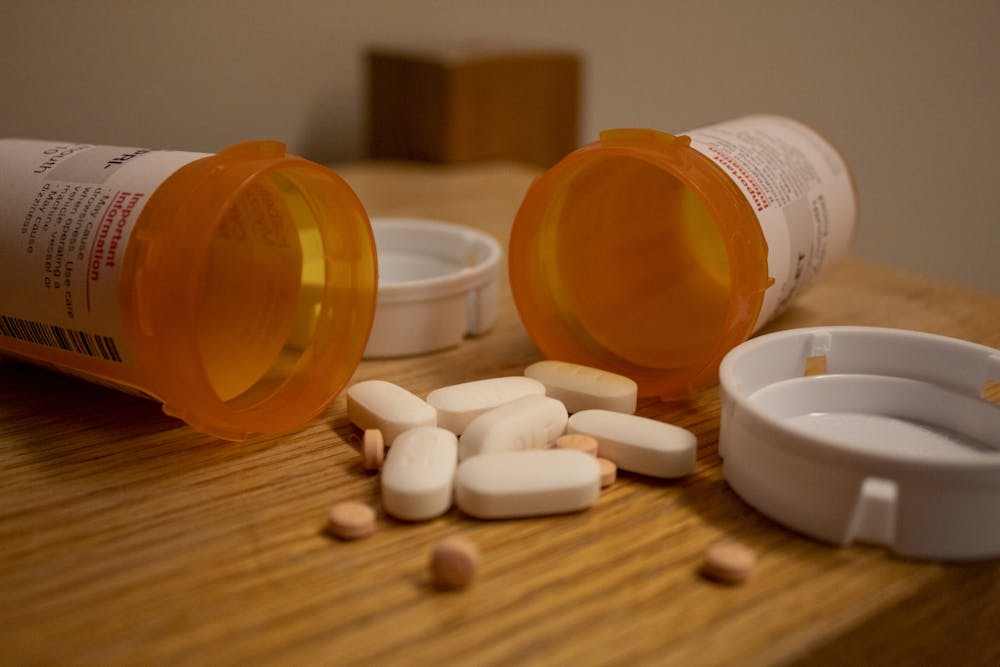Drug testing in the workplace is standard protocol for the vast majority of jobs across the nation. Currently, about 57% of employers drug test all employees, according to a poll by the Society for Human Resource Management. So it is very likely that you will be drug tested in your post-graduation job hunt .
Following the beginning of the war on drugs under the Nixon administration and Congress’ 1988 drug-free workplace law, employee drug testing skyrocketed, reaching nearly 80% of employers in a 1996 survey by the American Management Association – substantially higher than the previous 21% in 1986.
Drug testing as an industry standard serves no purpose other than to satisfy the drug hysteria reminiscent of the 1980s. Drug testing should be used only when necessary, and no one’s job should depend on it.
Although employee drug testing is in decline, it is still an issue that affects millions of Americans, especially when their livelihood depends on the accuracy of a drug test. Regular drug testing is unnecessary for employees who are not in safety-sensitive industries.
Moreover, drug testing can be unreliable and sows resentment in the workplace hierarchy by allowing managers to closely monitor or threaten workers.
About 15 million Americans currently struggle with alcohol abuse disorder, and there isn’t a surge of employers attempting to breathalyze their workers. Why should your employment be contingent on whether you decide to use drugs outside of work? Drug use itself isn’t the problem affecting workplace performance. It’s drug addiction and abuse.
Giving employers a blank check to drug test their employees only serves as another barrier to employment for millions of Americans who use illegal drugs. The 2018 National Survey on Drug Use and Health, a program directed by the U.S. government, found that 19.4% of Americans used illicit drugs at least once a year.
However, most drug users reported only using marijuana. Young people are particularly likely to use marijuana, with more than 1 in 3 adults under 25 doing so at least once a year. In Indiana, 1 in 5 college students use marijuana each month, according to a survey of 20 Indiana colleges conducted by the IU School of Public Health.
Nearly every Democratic presidential candidate supports legalizing marijuana at the federal level, an idea which would make employers testing for marijuana even less justifiable. The drug policy proposed by Sen. Bernie Sanders, I-VT, explicitly says it would eliminate drug testing for public benefits but leaves open the question of testing by employers.
Much of the argument for why employers drug test is related to improving safety conditions and ensuring employee productivity. However, there has been no evidence supporting the claim that employee drug testing has any effect on productivity, according to the National Center for Biotechnology Information.
As far as improving safety conditions, there has been some evidence suggesting that employee drug testing reduces drug- and alcohol-related accidents by over 50% for companies with high workers’ compensation incident rates. On the other hand, companies not prone to workplace accidents saw little to no effect on safety after instituting a drug-free workplace.
Moreover, a systematic review of 23 studies published in the journal Accident Analysis & Prevention found that the basis of evidence showing drug testing improves workplace safety is “at best tenuous.” Taking that into consideration, it makes no sense to drug test employees who are not in safety-sensitive industries, especially without cause.
According to the Indiana University website, IU has a substance-free-workplace policy, yet it has a reasonable respect for its employees’ privacy, requiring a justifiable cause for testing and an additional witness from management.
What is more egregious is that these tests almost always exclude substances like alcohol and tobacco simply because they’re legal. Some companies have even started to test their employees for legal substances, such as U-Haul which now refuses to hire smokers in 21 states - a brazen violation of personal liberty.
Rather than preliminary drug testing for employment, it would make much more sense to assess a worker’s on-the-job state of mind. If a worker has poor job performance, why should it matter whether their problem is due to an illegal substance or a legal one?
On top of being a waste of money for employers, drug testing without cause for industries that are not safety-sensitive is inherently anti-worker.
Employee drug testing is prevalent internationally, but in the U.S., the practice is far more widespread with few protections for workers’ privacy.
Conditions allowing drug testing in the workplace need to be completely overhauled to be very stringent, protecting a reasonable right to privacy of workers. In the push to expand worker unionization and worker protections, putting severe restrictions on employee drug testing is essential.
Jonah Hyatt (he/him) is a junior studying political science and philosophy. In his work, he focuses on U.S. politics and political philosophy.






